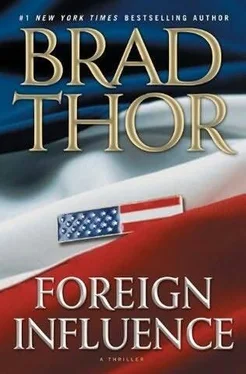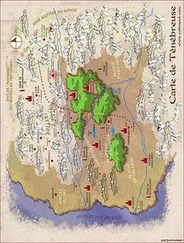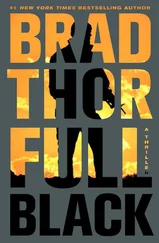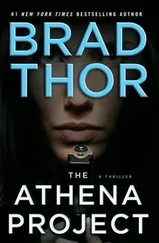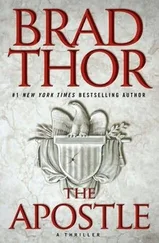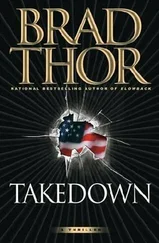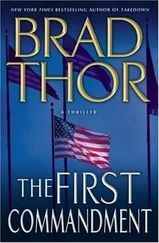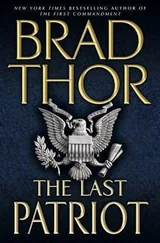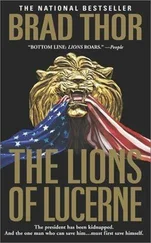“That’s what I mean by having someone working for you on the inside. He knows how the CPD works. Even though he’ll be wearing his lawyer hat, the fact that he’s also a cop will bring a lot of pressure to bear on the investigation.”
Burt Taylor thought about it for several moments. After looking at his wife, he turned back to Dennis Stern and said, “How do we get in touch with him?”
They met at an out-of-the-way restaurant not far from the hospital in the city’s Little Italy neighborhood along Taylor Street.
Sergeant John Vaughan was sitting at a table in the corner, his back to the wall, with a view of the front door. It was just after eleven a.m., and the restaurant was empty. He noticed Burt Taylor through the window before he even entered.
The hostess showed him to the table and John stood to shake his hand. “I’m very sorry about what happened to your daughter.”
“Thank you,” said Taylor as he released the man’s hand and took a seat. Vaughan was in his late thirties. He wore a brown suit with a green tie. His dark hair was cut short and he had eyes that moved around the room. “Are you expecting someone else?”
“I’m sorry,” said Vaughan. “I don’t come to this neighborhood a lot. It’s nothing personal.”
Taylor didn’t know what to make of him. So far, he wasn’t very impressed. “Dr. Stern thinks you may be able to help us.”
“Dennis is a good man.”
It was an odd reply. “You’re a police officer, but not a detective, correct?”
“That’s right.”
“But you are a lawyer.”
“I am,” he responded.
Taylor paused, waiting for some sort of a sales pitch as to why he should hire him, but nothing came. Whatever this man was, he was definitely no salesman. “Setting aside your relationship with Dr. Stern, why should I consider hiring you?”
“Well, it depends on what you want.”
“We want to find the driver of the taxi who ran down our daughter.”
“Good, because that’s what I want too.”
Finally, Taylor saw a spark in the man.
Vaughan continued. “Are you familiar with Maslow’s hierarchy of needs? You know, categories of needs that have to be met before a person can start focusing on achieving the needs of the next category?”
“I am.”
“Well, when it comes to cops, detectives in particular, that’s pretty much BS. There are two types of cases that will always get solved-the easy ones and the ones where there is so much pressure grinding down on the investigators that they absolutely have to climb out of the ring with a victory.”
“So which one is Alison’s?”
“Unfortunately, neither. There are more than five thousand Yellow Cabs in this city and the only witnesses to the crime were so inebriated, their testimony is worthless. So that scratches your daughter’s case from the easy category. And let’s face it, if this was an easy case, you and I wouldn’t be sitting here.
“As far as crushing the investigators with pressure, unless you have a very close relationship with the mayor, our police superintendent, or your daughter is some sort of notable personality, there’s just not going to be enough pressure to make this case a priority and get it solved.”
Taylor was confused. “Then where does that leave us?”
John Vaughan smiled. “It leaves you with me.”
“And what would you do differently?”
“For starters, I’d do the job the detectives were supposed to. I’d investigate the entire incident from front to back.”
“Then what?”
“I’d follow up on any leads and see where they take me.”
“That’s it?”
“That’s how it’s done,” said Vaughan.
“Officer, how many hit-and-run cases have you ever investigated?”
“To be honest with you, none.”
“How many violent crimes?”
There was a pause, so Taylor added, “Give or take.”
“Two or three,” responded Vaughan.
Taylor was beginning to feel that this had all been a waste of time. “How old are you?”
“Thirty-five.”
“And exactly how long have you been an attorney?”
“Six months, sir.”
“Six months? When the heck did you get out of law school, yesterday?”
“Actually, four years ago.”
Taylor was now completely convinced that he had wasted his time. “It took you that long to pass the bar?”
“No. I took a four-year leave to fight in Iraq.”
Taylor wondered if maybe he had the man. “What branch of the service?”
“The Marine Corps.”
“You’re a Marine?”
“Yes, sir. I worked in intelligence and helped shape our counterinsurgency strategy.”
After several moments of silence Taylor said, “Do you believe you can help with my daughter’s case?”
“I wouldn’t waste your time, sir, if I believed otherwise.”
Waving the waiter over, he replied, “Then let’s order some lunch and talk about what you can do for my family.”

VIRGINIA
Coming up from the dock, Harvath decided to stay out of sight until he knew what was going on.
He cut across his neighbor’s property and used a stand of trees for cover. Peering toward his house, he saw two blacked-out Suburbans parked in his driveway. Either Nicholas had someone watching his house, or he had access to real-time satellite imagery. Knowing the little man’s skills, he suspected it was the latter.
A small contingent of hard men in crisp suits with earpieces stood near the vehicles, their heads on swivels. They definitely hadn’t come to sell Girl Scout cookies. Harvath wished he’d taken his.45 down to the dock with him.
As he watched, one of the men spoke into a microphone at his sleeve. When the passenger door of the second vehicle opened, Reed Carlton stepped out and Harvath relaxed.
He was a tall, fit man in his mid-sixties with a prominent chin and silver hair.
“You really should call first, Reed,” said Harvath as he slipped from behind the tree line and took Carlton ’s security team by surprise.
“Sorry about that,” said the Old Man as Harvath met him in the driveway and the two shook hands. “Something has come up. Can we talk inside?”
“As long as you’re okay with casual Monday,” replied Harvath, referring to his shorts-and-no-shirt look.
The older man nodded and followed him inside. After pulling a shirt from the hall closet and putting it on, Harvath directed his new boss to the kitchen.
“Coffee?” he asked.
“Please,” said Reed as he sat down at the kitchen table and placed his briefcase next to him. “I understand Iraq was a success.”
“Not for the little boy who died.”
“I was sorry to hear about that.”
Harvath didn’t reply. He kept his back to the man, pulled two large mugs out of the cupboard, and set them on the counter.
“I haven’t read your full debrief yet,” continued Carlton. “Did you go through with the whole thing?”
There was silence, and the Old Man waited. Finally, Harvath said, “All of it.”
While Carlton was a master at psychological operations, this assignment had been Harvath’s from start to finish. He had dubbed it Paradise Lost. The idea was to shake any other al-Qaeda cells who might be considering the kidnapping and torture of children. Upon each terrorist body at the safe house was left a black envelope. Inside the envelope was a detailed account, in Arabic, of horrible things supposedly done to the men before they had been killed. Placed into the mouth of each terrorist had been a pickled pig’s foot from a jar that Harvath had brought with him from the U.S.
Читать дальше
